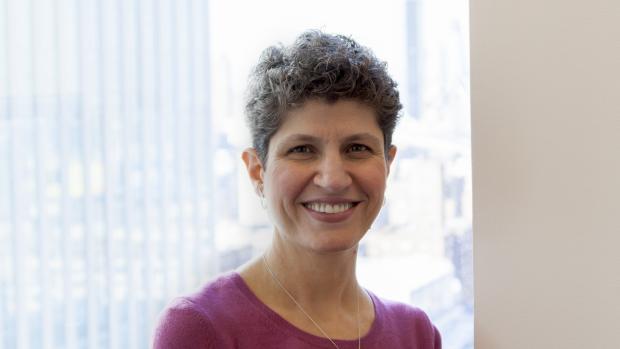Elza Erkip presents the 2022 Padovani Lecture

The IEEE Information Theory Society named Elza Erkip, Institute Professor of Electrical and Computer Engineering, and a member of NYU WIRELESS at the NYU Tandon School of Engineering the 2022 Padovani Lecturer. The Padovani Lecturer Program was established with a generous gift by Dr. Roberto Padovani in 2009. The award provides for an outstanding member of the information theory community to deliver a lecture at one of the ITSoc’s Schools of Information Theory, for the benefit of students and postdoctoral researchers.
Elza Erkip, whose interests are in information theory, communication theory, and wireless communications, spoke at the North American School of Information Theory at the University of California, Los Angeles.
Dr. Erkip is a member of the Science Academy of Turkey, a Fellow of the IEEE, and a Clarivate Highly Cited Researcher. She received the NSF CAREER award in 2001, the IEEE Communications Society WICE Outstanding Achievement Award in 2016, the IEEE Communications Society Communication Theory Technical Committee (CTTC) Technical Achievement Award in 2018, and the IEEE Communications Society Edwin Howard Armstrong Achievement Award in 2021. Her paper awards include the IEEE Communications Society Stephen O. Rice Paper Prize in 2004, the IEEE Communications Society Award for Advances in Communication in 2013 and the IEEE Communications Society Best Tutorial Paper Award in 2019. She was a member of the Board of Governors of the IEEE Information Theory Society 2012-2020, where she was the President in 2018. She was a Distinguished Lecturer of the IEEE Information Theory Society from 2013 to 2014.
Erkip spoke about theoretical foundations of matching graphs and databases, where one of the main applications is web privacy. In databases where corresponding entries are correlated but shuffled, some attributes may be missing or repeated. The lecture explored how database and graph matching can be viewed from the lens of information theory, and how information theoretic tools can be used to derive theoretical guarantees as well as algorithms for matching.


